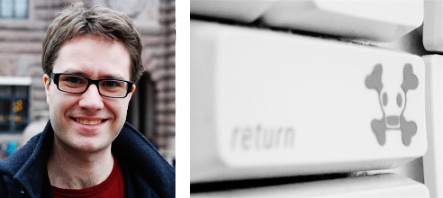The Pirate Bay trial is one of many attempts by the film and music industries to limit illegal file sharing. Whether they are guilty or not is for the court to decide.
But the real problem is that both the film and music industries are trying to sue the crap out of their customers instead of providing accessible ways to make payment over the internet.
Digital developments have completely outpaced industry business models, and to try protect these models at the cost of people’s privacy and legality is a very bad choice.
Unfortunately, this is exactly the way we’re going. Soon, under the terms of the sanctions directive voted on last week by the Swedish parliament, people will have to accept intrusions into their homes that are almost comparable with house searches, in many cases without the suspects being anything like guilty of a crime. And all this in an attempt to stop a small crime like file sharing.
These attempts to sue people into obedience just don’t work. The Pirate Bay will live on regardless of the outcome of the trial and people will continue file sharing until there are viable alternatives.
What the industry needs to do is develop simple and inexpensive alternatives which allow people to purchase products on the internet. People want to pay their way, but it’s often more expensive and more difficult to pay through the internet. In many ways it’s easier to buy the items in a store, except then you have to pay for distribution, packaging and the media on which the material is stored.
The only way to stop all forms of file sharing is to introduce a police state, where all users’ internet traffic is monitored at all times. The emergence of such a society is not a reasonable price to pay just to stop the file sharing of some copyright-protected material.



 Please whitelist us to continue reading.
Please whitelist us to continue reading.